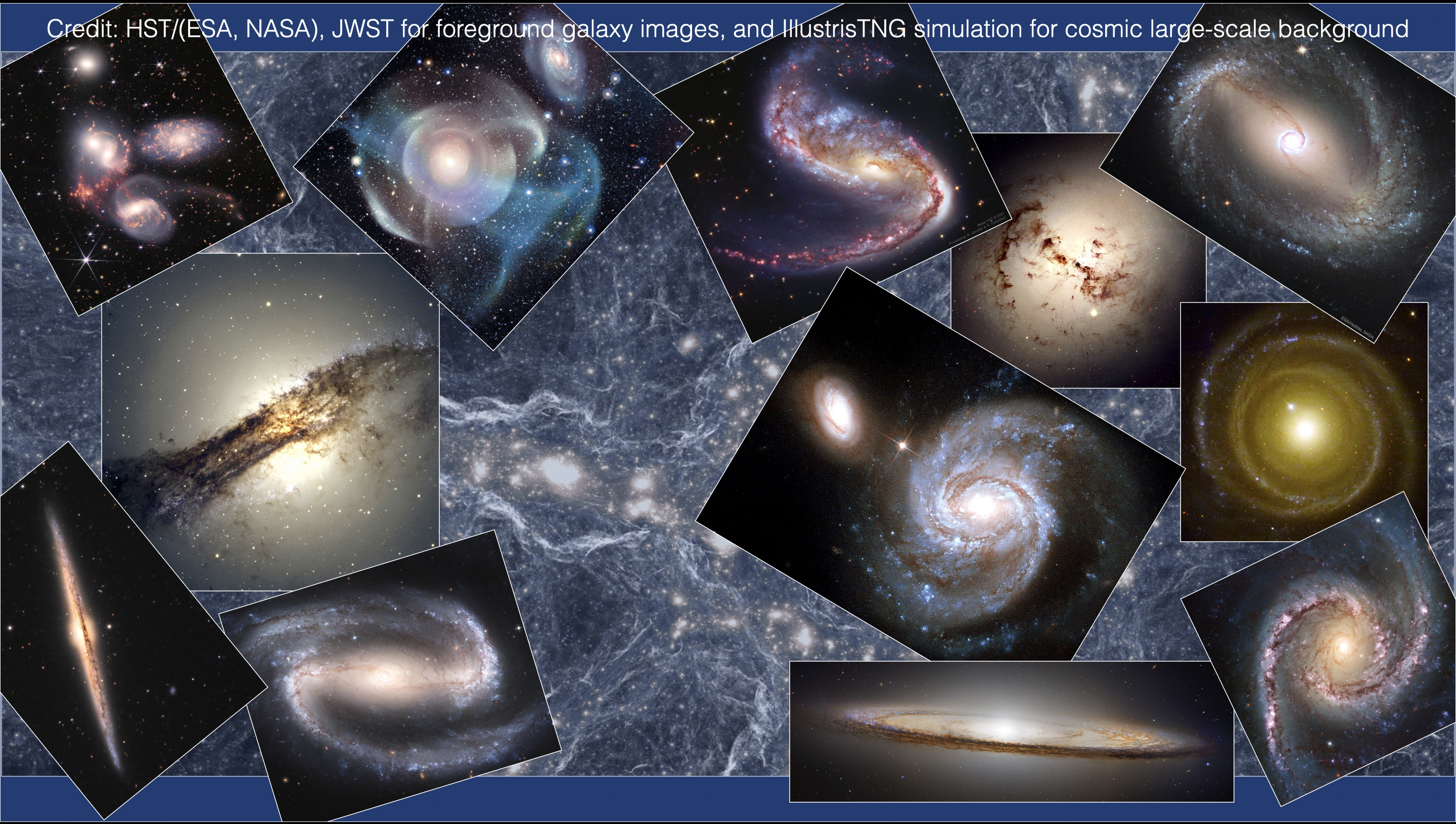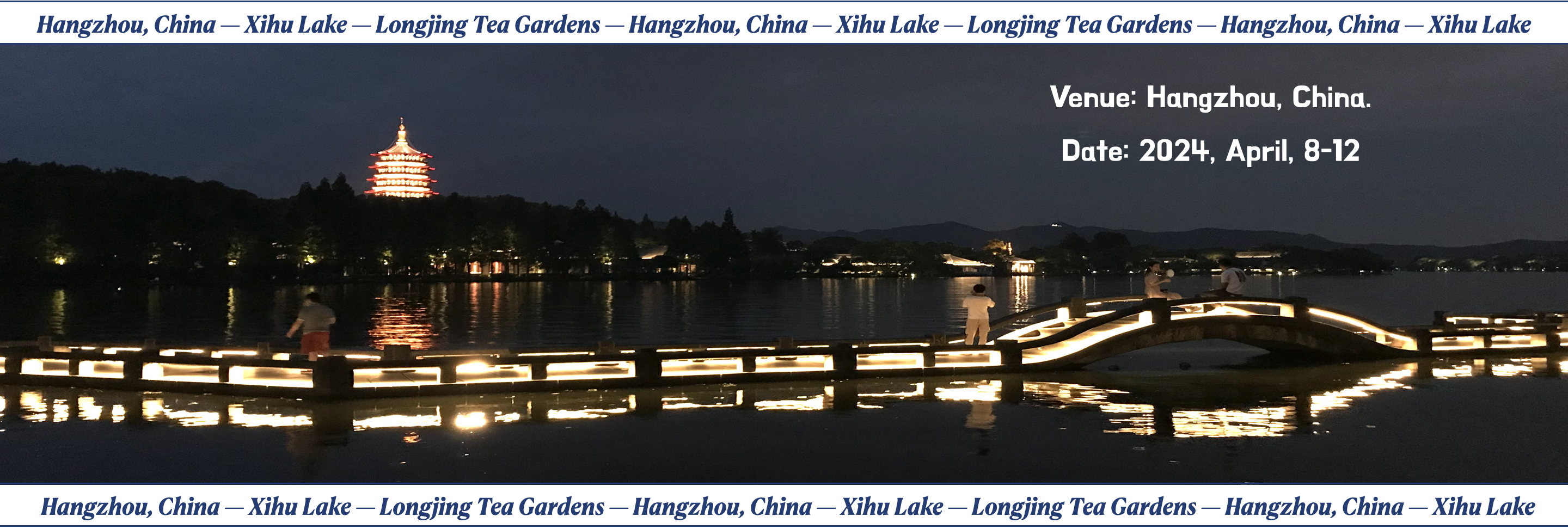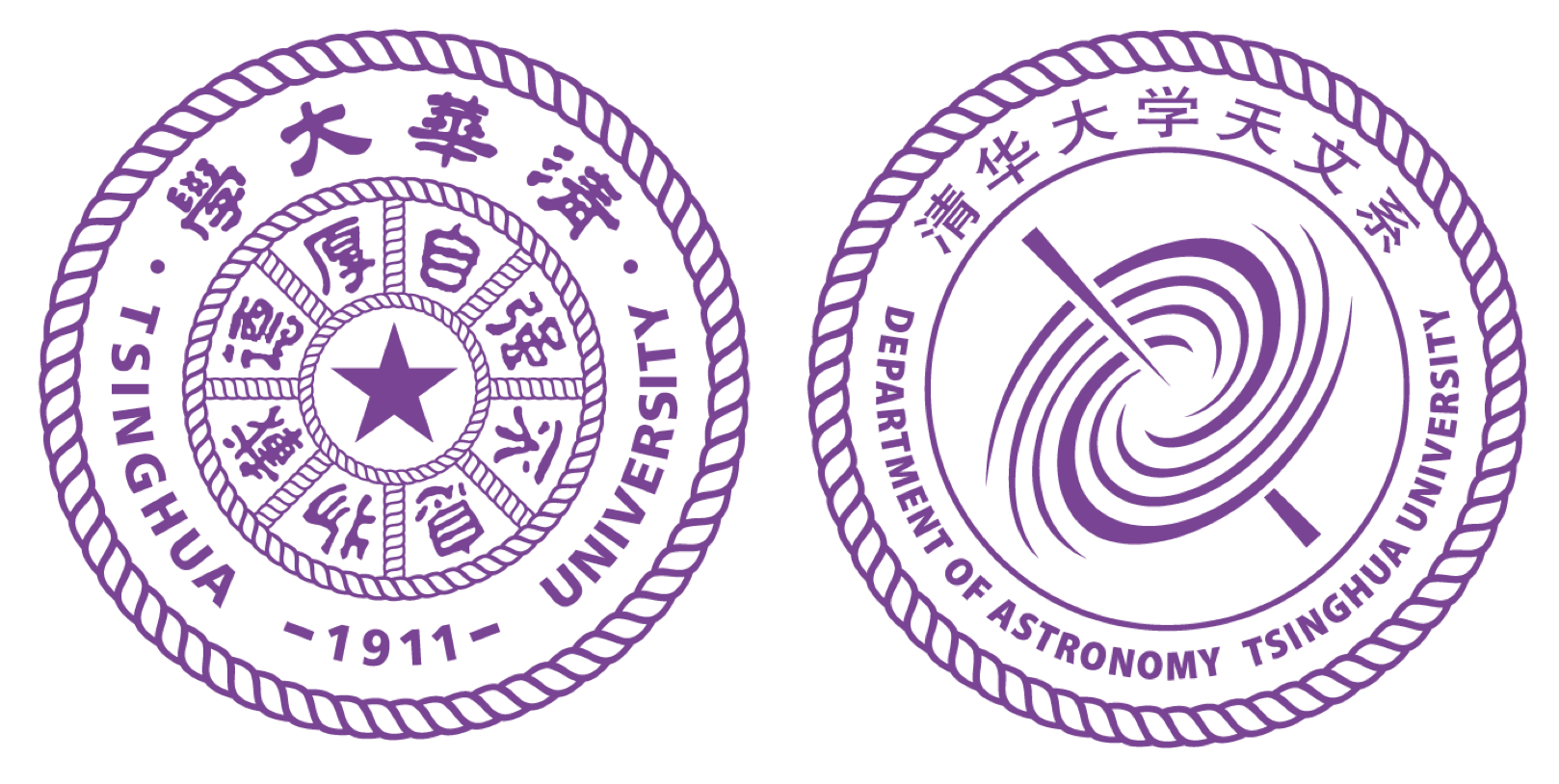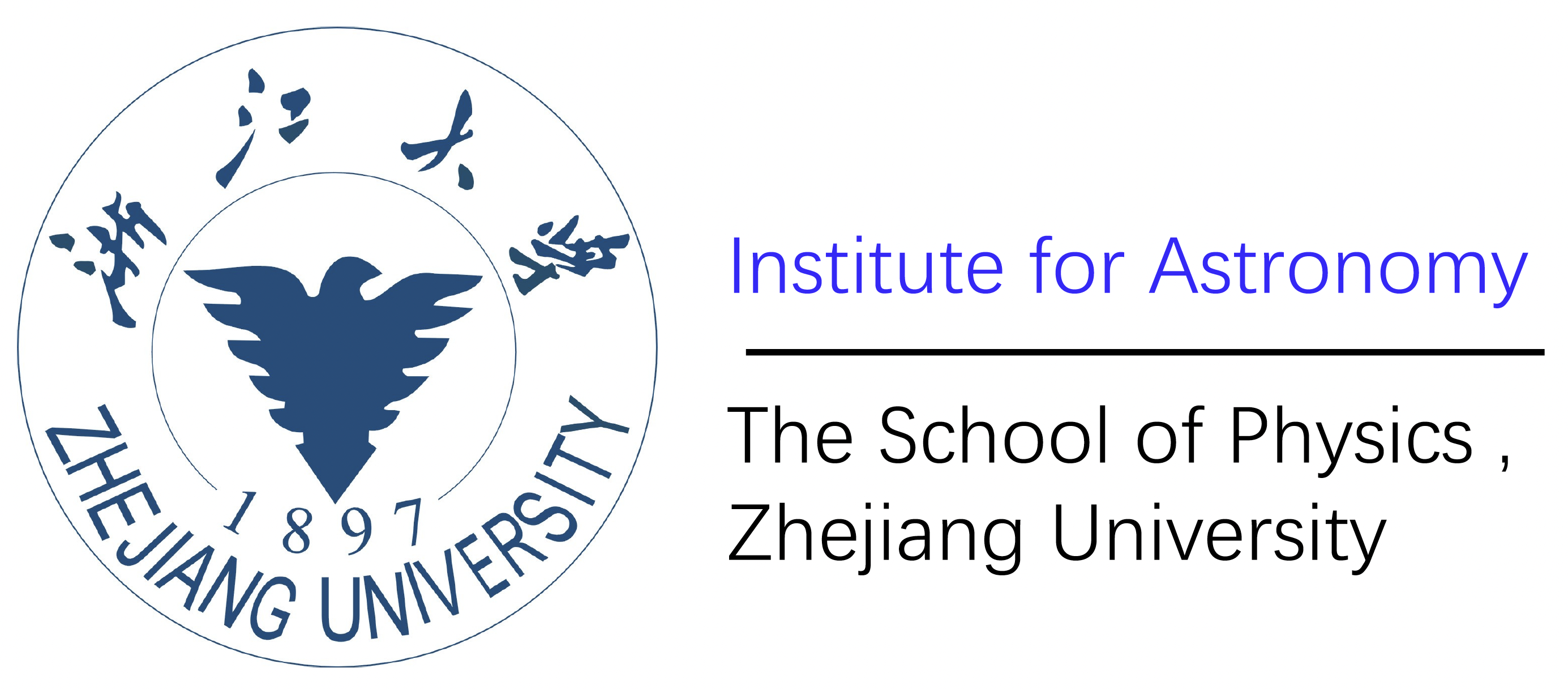
Co-evolution of galactic eco-systems and their large-scale environments
2024, April, 8-12, Hangzhou, China.
Welcome
We are pleased to announce the conference "Co-evolution of galactic eco-systems and their large-scale environments" will take place on 8-12 Apri 2024 in Hangzhou, China. [poster]
How do present-day galaxies acquire different morphologies, star-formation activeness and dynamical status? How much of this is due to an inheritance from the large scale initial condition, and how much is determined by random-natured local perturbation and intrinsic secular evolution? A fundamental question in the field of galaxy formation and evolution is what ultimately decides the fate and final state of galaxies that live inside dark matter halos and co-evolve with the large-scale environment. The goal of this scientific assembly is to make solid progress in our understanding of the close connections between galaxy properties and the large scale environment through dedicated talks and discussions at this event.
Related science topics include the following aspects:
- The effects of large-scale tidal torque environment on galaxy evolution
- The role of galaxy merger and interaction environment on galaxy evolution
- Physics of circum-galactic medium and its role in linking galaxies and their large-scale environment
- How do galaxies acquire and lose spin in dark matter, gas and stars
- How do galaxies build up and consume the cold gas reservoirs
- Connections to environmental types (knot, filament, sheet and void)
- Connections to halo assembly bias
- Connections to galaxy conformity
- Observational inferences from the CGM and galaxy surveys
Registration
For detailed information, please contact Ms. Liu, at: jiaqiliu _at_ tsinghua _dot_ edu _dot_ cn.
Program

Logistics
Venue: the conference will take place at Hangzhou Jinxi Hotel (金溪山庄), address: No.39 Yanggongti, Xihu District, Hangzhou, 310007, China. If you have special request regarding hotel booking, please email Ms. Liu at: jiaqiliu _at_ tsinghua _dot_ edu _dot_ cn.
Visa Application: if you need a visa to participate this conference, please email Ms. Liu at: jiaqiliu _at_ tsinghua _dot_ edu _dot_ cn, with your full name, title, affiliation, date of birth, nationality and passport number.
List of speakers
Organization
Department of Astronomy, Tsinghua University, China.
Insitute for Astronomy, The School of Physics, Zhejiang University, China.


Scientific Organizing Committee
Local Organizing Committee
Travel
The closest international airport to Hangzhou is the Hangzhou international airport. However, the number of international flights to this airport is limited. Alternatively you can fly to either Shanghai Pudong international airport or Shanghai Hongqiao international airport, then take subway to Shanghai Hongqiao train station, and then by high-speed train connection to Hangzhou. It takes about 3 hours from Shanghai international airport to Hangzhou.
